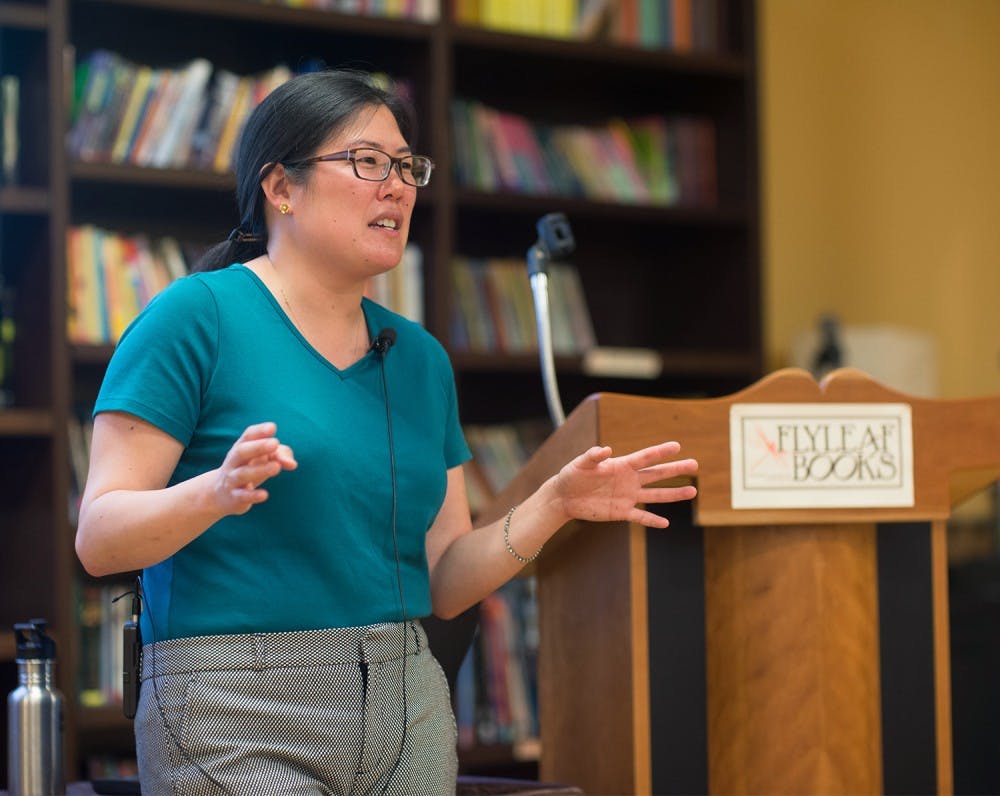On Tuesday night, Flyleaf Books hosted Dr. Heidi Kim — a UNC english associate professor — to hold Faulkner and Steinbeck, Aging Together: American Authors in the Cold War. At the talk — which was a part of UNC’s “Spotlight on Scholars” series — she took a deeper look at how American culture and politics were profoundly intertwined during the Cold War.
“The principle of morality becomes the cultural bedrock of American democracy during the Cold War era, and the terms moralist, universal and individualistic are used as code for democratic, and anti-Communist by the U.S. State Department,” Kim said.
Kim said while the earlier works of William Faulkner and John Steinbeck are now celebrated in schools and in society, they received little attention during the Cold War.
“Post-war era American literature is getting reformulated, and Faulkner is out of print in America at this time, which is shocking considering he is the second most written about author behind Shakespeare,” Kim said.
Kim said Faulkner and Steinbeck, who she called the “old guard” of American literature, struggled to conform to this new political and cultural environment present in America, especially since many critics viewed their early writings as obscene, disgusting and radical.
“How do we turn Steinbeck into a moralist? How do we turn Steinbeck into an individualist,” Kim said.
“Steinbeck brought man down to the level of an animal, he was a literary naturalist, and his anti-individualism was prevalent in ‘The Grapes of Wrath’s’ emphasis on groups.”
But Kim said she saw Faulkner and Steinbeck’s Nobel Prize speeches as visible shifts in their personas — she said both highlighted individual morality and the individual triumph as cultural necessities.



